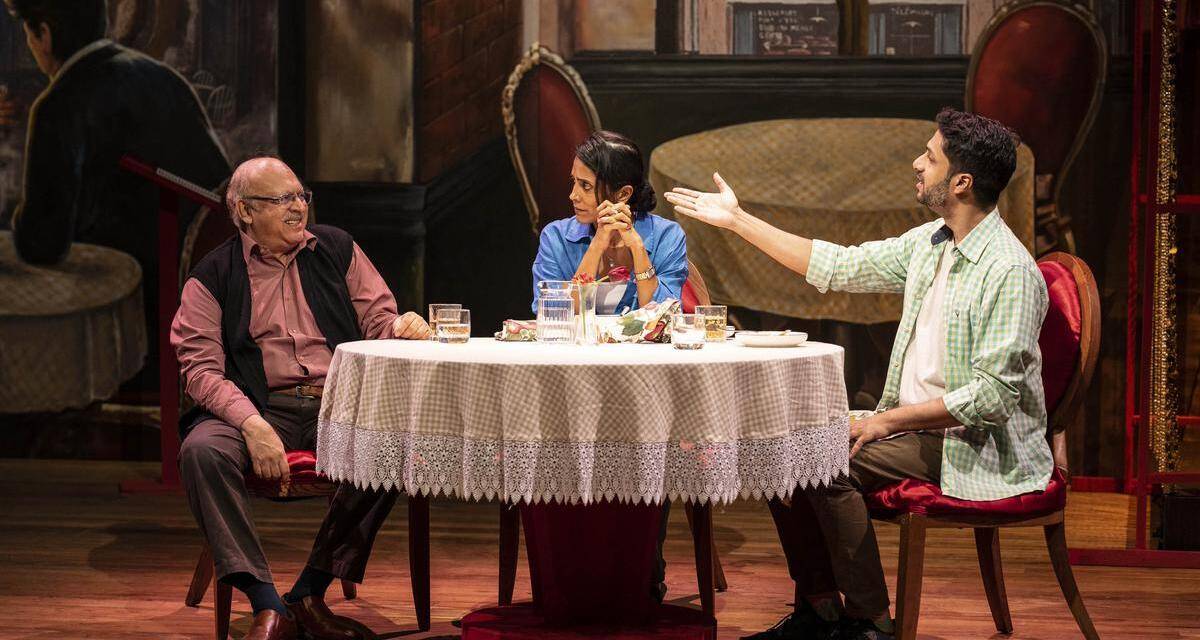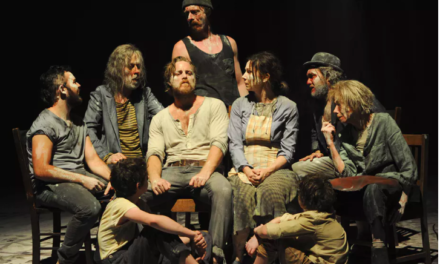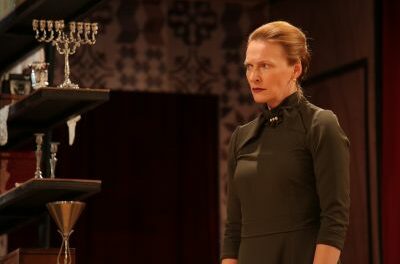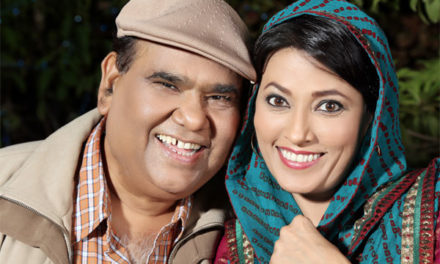The F Word, according to Akarsh, is a deeply personal conversation about parents, children, marriage, ageing, and more.
Akarsh Khurana likes to explore the dynamics of dysfunctional families. It is evident from his works. Tripling, a show he co-wrote with Sumeet Vyas, explores the relationship between three estranged siblings. In Karwaan, a film he directed, one of the protagonists, played by Dulquer Salmaan, has what Akarsh calls “daddy issues.” These complexities of family relationships are relatable and rich in comedic and dramatic potential.
His play, The F Word (by Aadyam Theatre), which will be staged at Ranga Shankara, Bengaluru, on November 17 and 18, explores the same theme.
The description of the play reads: The narrative centres around Chetan, a dedicated high school teacher, and his estranged sister, Unnati, a seasoned psychologist, as they embark on a journey to untangle the complex web of their parents’ marital saga. Amidst this chaos, they inadvertently unveil a trove of long-concealed family secrets, which had been meticulously veiled beneath a façade for years.
The F Word, according to Akarsh, is a deeply personal conversation about parents, children, marriage, ageing, resentment, nostalgia, and importance, or lack, of communication. “It is darkly comic and surprisingly relatable, or so we hope,” he adds.
“It’s interesting how this theme has organically emerged in my creations,” says Akarsh. “I find all aspects of family scenarios intriguing because they capture the essence of real but complicated relationships. So, I find myself naturally gravitating towards such content.”
Alexander Payne, he says, is an inspiration. “His works, such as Sideways and The Descendants epitomise what some refer to as ‘mumblecore’ (a subgenre of films characterised by naturalistic acting and improvised dialogue).”
“A more recent example is the TV series Succession, where a family drama unfolds within a business setting, resulting in hilariously uncomfortable interactions.”
The F Word, while delving into the same theme as some of his earlier creations, Akarsh promises will have new layers. “The story revolves around estranged siblings reuniting to meet their father. However, their traumas take precedence, creating a complex dynamic. Despite being in touch and outwardly concerned, their individual struggles add layers to the interaction.”
With respect to The F Word, the interaction is the play. It is essentially a conversation unfolding during a family lunch. “The challenge lies in ensuring that 75 minutes of continuous dialogue remain engaging. The pressure during the writing process is considerable; the conversation must be compelling, with a well-structured arc to maintain audience interest,” says Akarsh.
“This approach represents a return to the basics, relying heavily on the quality of the writing and the actors’ performances. The simplicity of the form avoids gimmicks or flashy elements, emphasising the power of the spoken word and the actors’ delivery.”
Based on the audience feedback from previous shows, Akarsh says the play strikes a chord with the viewers. “What’s particularly interesting is we learnt more families than expected share some level of dysfunction — it’s more widespread than acknowledged. Some people said they checked on their parents after the performance. Even with Karwaan, something similar happened, where a few of them got back in touch with their fathers.”
Though Akarsh works in films and theatre, he finds the latter more liberating. “The fewer stakeholders allow for a greater agency in creating what I want. In contrast, larger budget projects for the screen come with more opinions and restrictions.”
“But I’ve cherished every medium I’ve worked in, finding wonderful experiences whether shooting for film or engaging as an actor, director, or writer.”
The play opens at the Ranga Shankara, Bengaluru, on November 17 at 7.30 p.m. and on November 18 at 3.30 p.m. and 7.30 p.m. Tickets at bookmyshow.com
This article appeared in The Hindu on November 17, 2023, and has been reposted with permission. To read the original article, please click here.
This post was written by the author in their personal capacity.The opinions expressed in this article are the author’s own and do not reflect the view of The Theatre Times, their staff or collaborators.
This post was written by Praveen Sudevan.
The views expressed here belong to the author and do not necessarily reflect our views and opinions.


















